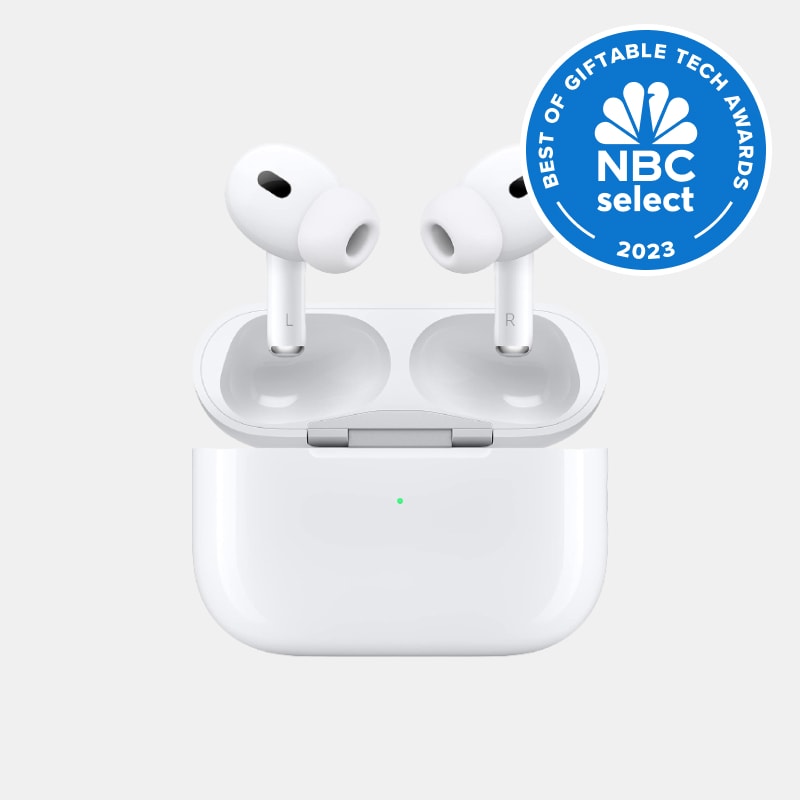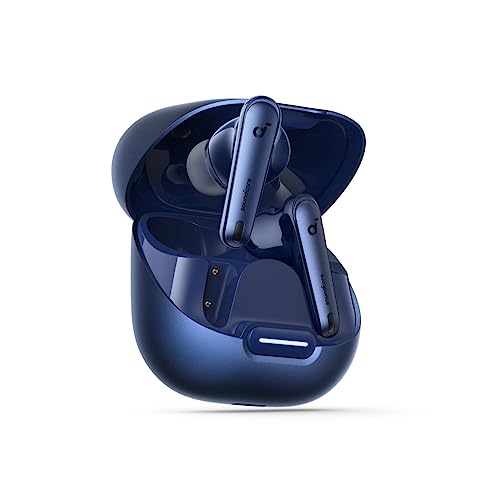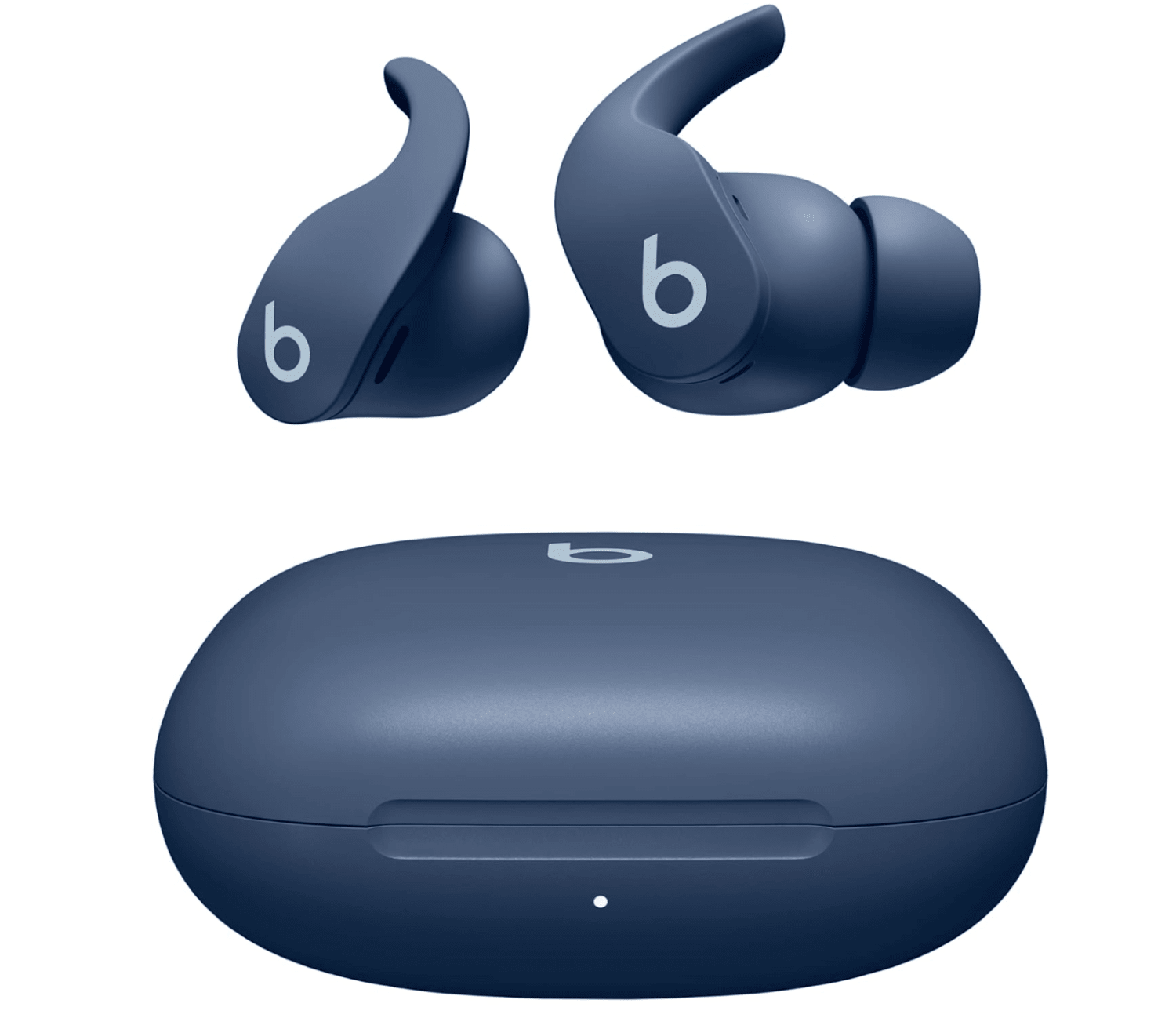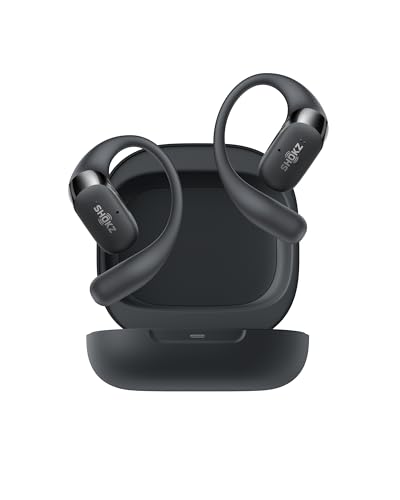I’m using wireless earbuds constantly. I’m tuning out noise on the subway to listen to a podcast. I’m taking calls at work. I’m listening to music while I work out. I always have a pair in my bag or my pocket.
But there are so many options on the market, making it hard to know which is best for you and your needs. As NBC Select’s tech reporter, I test earbuds on an almost monthly basis. Below are some of the best of the best for all kinds of activities and budgets.
Selected.
Show 3 More
Show Less
How I test wireless earbuds
I try new earbuds all the time, incorporating them into my daily routine. That means office work, video calls, subway commutes, outdoor runs, indoor gym time and watching videos on my phone, tablet or laptop. While using earbuds, I pay close attention to the following:
- Comfort: A pair of earbuds is only useful if you feel comfortable wearing them for hours at a time. I wore earbuds for upwards of 3 hours to get a feel for long-term comfort. I also tried different-sized ear tips to find my ideal fit. Everyone’s ears are a little different. If the earbuds don’t fit comfortably right out the box, try different eartips to get a more comfortable fit.
- Noise cancellation: I used each pair of earbuds for my office commute on the NYC subway. I also used them in-office to block out background noise and conversations.
- Sound quality: I listened to the same music playlist with each pair of earbuds to identify differences in sound quality and instrumentation.
- Ease of use: When trying earbuds, I used the on-ear controls to take calls, play media and more. I also downloaded each brand’s mobile app, noting how easy it was to use and the utility offered. Some earbuds let you connect to multiple devices at the same time, this is called Bluetooth multipoint — I tried this feature with my phone, tablet and laptop when available.
- Battery life: I tried each pair of earbuds for at least a week. Throughout that period, I paid attention to how many times I needed to charge them.
Want more from NBC Select? Sign up for our newsletter, The Selection, and shop smarter.
The best wireless earbuds
After trying out dozens of earbuds, my top picks came from brands like Apple, Google, Beats, Bose and Shokz.
Best for iPhone:
If you own an iPhone, these are the earbuds to get. They are comfortable, have excellent sound quality and noise cancellation. They are also good for basically any activity you throw at them including outdoor runs and workouts.
With noise cancellation turned on, chatter and music at the gym fade instantly, in my experience. With transparency mode on, I can hear my surroundings very clearly, perfect for running outdoors. AirPods Pro 2 also includes four ear tip sizes in the box, more than most brands, which can help you get a more comfortable fit for your ears.
The buds also have great on-ear controls, including a swipe on the ear stem to control volume.
If all of this sounds good to you, but you can’t stand rubber eartips clogging your ears, consider Apple AirPods 4 ANC instead. They have similarly great sound and call quality, but leave your ears more open because they don’t have rubber eartips. However, this does mean the noise cancellation is less effective than AirPods Pro 2, in my experience.
Best for Android:
Anyone with an Android phone looking for one pair of do-it-all earbuds should consider these latest Google Pixel buds. The new design has a mini wing-tip stabilizer in each ear that fits snugly and makes them stable and secure for workouts. “They are comfortable and don’t hurt the inside of my ear within an hour of wearing them,” says NBC Select commerce editor Cory Fernandez.
Best budget:
You don’t need to spend hundreds of dollars to get fully featured earbuds — these have active noise canceling, transparency mode, Bluetooth multipoint and wireless charging, all for under $100. They are comfortable, sound surprisingly good and can compete with earbuds that are much pricier. The only downside is noise cancellation — it’s okay, but isn’t very useful against plane, train and car noise.
The Liberty 4 NC is not the brand’s latest model, and while I would love to recommend the newer Anker Soundcore Liberty 5, which are excellent, they are $130, which I don’t consider “budget.”
Best affordable earbuds:
These are some of the most affordable wireless earbuds that still deliver a steady Bluetooth connection, surprisingly good sound quality and a convenient charging case. The earbuds and case have a combined battery life of around 32 hours, and the case has a cable built-in for convenient recharging. If you purchase the earbuds from the brand’s website, you can choose from 13 bright and earth-tone colorways.
They don’t have active noise canceling or transparency modes, and the app is a little lackluster, but these are fair trade-offs for such a low price.
Best noise cancellation:
If your top priority is blocking out background noise like the hum of a plane cabin, rattling train cars and water cooler talk, these earbuds are for you. They have the best noise cancellation of any earbud I’ve tried, full stop. Plus they sound amazing, with detailed instrumentation in music and clear audio in TV shows and movies.
They are big earbuds, though — I don’t find them particularly comfortable for fitness and exercise. They are also pricey at $300. If you’re willing to sacrifice a little noise cancelling power, consider the Bose QuietComfort Earbuds as a more affordable runner-up.
Best for fitness:
The Beats Fit Pro have been one of my go-to workout headphones for years and remain a favorite after all this time. The wing-tip design creates a secure fit that never faltered during runs, bike rides or gym time. But unlike full ear-hook earbuds, the Beats Fit Pro case is just small enough to be pocketable.
Both earbuds have physical button controls that are easy to use, even when I am wearing thick gloves during a winter run. You can press either button to stop, start and skip songs, and holding the button changes between noise cancellation and transparency mode. The Beats Fit Pro pairs easily with my iPhone and I have a similar experience on Android using the Beats mobile app.
The Beats Fit Pro are dated, though. They originally launched in 2021, and are due for an upgrade.
Best open ear:
Open earbuds rest on the outside of your ear instead of going inside of your ear canal. I use them on bike rides while NBC Select editorial director Lauren Swanson uses them for runs and races like the New York City Marathon — it makes it easier to hear nearby cars, bikes and pedestrians.
While I’m partial to the Shokz OpenRun Pro 2, I admit that the more versatile option for everyday use is the Shokz OpenFit 2. They are small and comfortable, have great sound quality (for open earbuds) and fit in a relatively pocketable charging case. But, like with any pair of open earbuds, don’t expect them to block any noisy neighbors while working out at the gym.
Best clip on:
A newer offshoot of open earbuds is clip-on earbuds. These earbuds wrap around your outer ear like an ear cuff, leaving your ear canal open and the top of your ears free for things like glasses and hats.
The Bose Ultra Open Earbuds are some of the best clip-on earbuds I’ve tried (with a price tag to match). They don’t look very secure at a glance, but after multiple 5Ks and 15 plus mile bike rides, they are some of the most secure open earbuds you can get. They are also comfortable, lightweight and unobtrusive — I wore them for a full day and forgot they were on my ears multiple times.
Clip-on earbuds don’t have the best sound quality — the speakers are further away from your ears. While audio quality on the Ultra Open Earbuds is good, call quality isn’t great. You can learn more in my Bose Ultra Open Earbuds review.
If you aren’t completely sold on clip-on earbuds, consider trying the Anker Soundcore C40i, JLab Flex Open or Soundpeats Pop Clip earbuds instead — they are all much cheaper, but have a similar shape and size to the Ultra Open.
Best earhook:
The Beats Powerbeats Pro 2 are some of the most secure workout headphones I’ve ever tested. The earhook design and general fit take a minute to set into your ear, but once they’re settled, they are rock solid and don’t budge no matter what I am doing.
The earbuds have noise cancellation and transparency modes, on ear media and volume controls, a wireless charging case and work well on both iPhone and Android devices. They also have built-in heart rate sensors in each earbud, and while a little finicky to sync, they are nice to have if you don’t already use a fitness tracker or smart ring. You can read more in my Beats Powerbeats Pro 2 review.
My previous earhook pick, the JBL Endurance Peak 3, is still a great option if you are looking for something simple, secure and less pricey.
Best cheap earhook:
For $30, I was surprised by the quality of these earbuds. They have a large ear hook design that wraps around the back of your ears — I found them to be tight and comfortable, but not so snug that I couldn’t hear traffic noise or other runners around me. Plus they have a transparency mode and customizable settings through the JLab app.
I think these are best as a second pair of earbuds you use specifically for working out or going for a run. You can be a little more carefree with a $30 pair of earbuds than a $300 pair.
How to shop for wireless earbuds
There are hundreds of wireless earbuds on the market. Some can look almost identical, but they can vary wildly in features and price. Below are a few factors to keep in mind while shopping for a new pair.
Operating System (iPhone and Android)
Not all wireless earbuds play nice with both Apple and Android devices. If you use Apple AirPods on an Android device, for example, most of their features will be difficult or impossible to use. Earbuds that work well on both platforms tend to have useful standalone apps that can help control noise cancellation, audio equalization and more.
Automated noise canceling and transparency
Noise canceling and transparency modes are both useful features that add versatility to any pair of earbuds. Noise canceling blocks outside sound, while transparency mode lets sound in so you can better hear the noise around you, a useful safety feature for activities like outdoor running. Cheaper earbuds (under $100) may have one or both built-in, but generally don’t perform as well as pricier options. (under $250).
Water and dust resistance
Water and dust resistance is indicated by an earbud’s IP (ingress protection) rating. IP ratings are denoted with two numbers, for example, IP55. The first digit represents intrusion protection against dust and debris. The second digit denotes moisture protection.
If you want to wear your earbuds in wet and rainy conditions, get a pair with a higher IP rating, they are less likely to malfunction in bad weather.
Why trust NBC Select?
I am a reporter at NBC Select who covers technology and fitness including recent stories on fitness trackers, running shoes and cameras. I try new earbuds and headphones constantly, and spoke with other NBC Select team members about their experience with earbuds they use and have used previously.
Catch up on NBC Select’s in-depth coverage of tech and tools, wellness and more, and follow us on Facebook, Instagram, Twitter and TikTok to stay up to date.




